How one kickass gaming bar survived the pandemic
Fortress is Australia's biggest esports arena as well as a videogame bar, and it opened right before a nine-month lockdown.
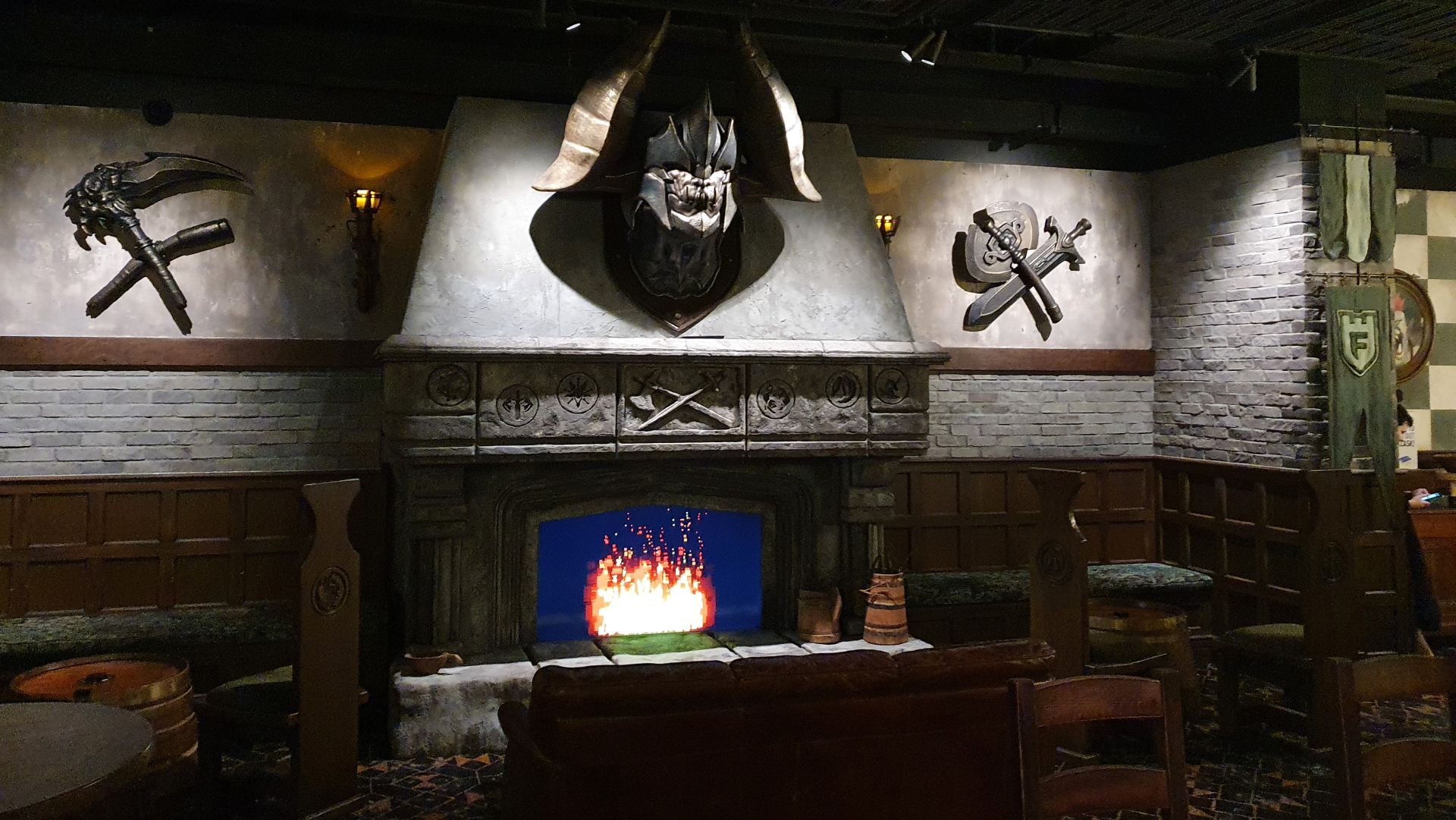
Most of the esports venues and videogame bars I've been to have been small, or kind of dingy. They cater to a niche audience and sometimes that means they can only afford to rent a niche. Like, in a wall.
In March of 2020 I went to the opening night of Fortress, a combination esports arena and game bar in Melbourne, Australia. A two-level structure at the bottom of a mall in the city, it wasn't like regular barcades. There were comfortable chairs at tables with space to walk between them, and a bookshelf of board games for hire. There was a 200-seat esports arena and a LAN lounge with 160 Alienware PCs. There was a pinball section complete with an Addams Family cabinet.
Its grand opening couldn't have come at a worse time.
Less than a week later, a state of emergency was officially declared in response to the Covid-19 pandemic and Melbourne went into lockdown. When restrictions were eased months after that, a second wave followed and lockdown resumed. It wasn't until October 26, when zero deaths and zero new cases were recorded statewide, that a slower easing of restrictions began. It's a process continuing now as vaccinations shakily roll out across the country and Australia finds itself in the fortunate position of shambling toward normality.
Reopened venues are a sign of that. Fortress reopened at reduced capacity in December, nine months after its launch. Though they had to let go 50 casual part-time employees, the rest of the staff were kept on with help from a government subsidy program called JobKeeper, and their business partners and landlords were understanding about the situation. "No one wanted to see us go broke after four days," says co-founder Jon Satterley.
Satterley is sitting at a booth in the Tavern, a section of Fortress directly above the high-end PCs of the arena and LAN Lounge—some in rentable "streamer pods" if you want to try streaming in a professional setup, but don't have space at home. It's an awful lot of hardware to leave idle for nine months, but Fortress's business partners were understanding, Satterley says. "Alienware and Dell, who never signed up for a joint to be closed and could have backed back from their commitment, they doubled their commitment and supported us when we pivoted to the online stuff we did during lockdown."
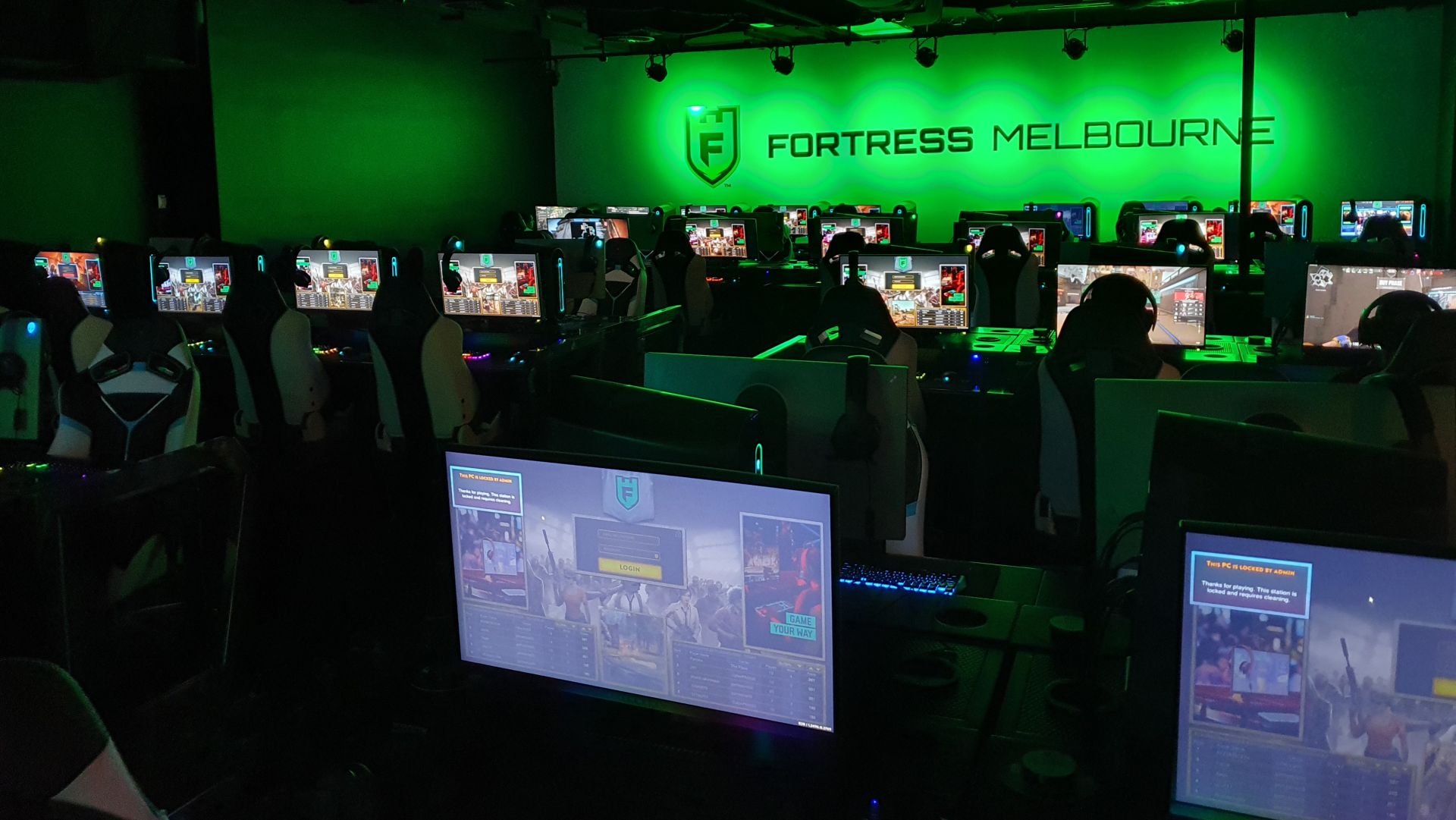
That "online stuff" involved using their production facilities to host events over Twitch, including weekly trivia nights and open competitions in a rotating variety of shooters with professional casters providing commentary. These regular Friday Night Firefights showed that esports could continue during the lockdown, so Fortress approached Riot about partnering with them to host a Valorant competition as part of the Ignition Series of third-party tournaments. The result was September's Rise of Valour, which had pro commentary by casters like Vandie, Zenox, and Michael 'Guzz' Gurrie, and over $70,000 ($53,000 USD) worth of prizes.
Keep up to date with the most important stories and the best deals, as picked by the PC Gamer team.
Running a tournament under lockdown was challenging, of course. "All the broadcasts whilst we were under the hardcore restrictions were empty arena, just the casters in the booth," Satterley says. "And then when the restrictions went super mad it was everyone remotely from home, and production being done remotely as well."
It paid off, and has led to viewing parties for tournaments like the Rainbow 6 Oceanic Nationals now being hosted in the arena. "We came out of that going, wow, we've actually stood up a new pillar of this business. That wouldn't have happened if it hadn't been for Covid because we would have been just so busy on other stuff."
Not every idea for lockdown survival was so successful. Having a chef on the payroll, Fortress decided to sign up with Deliveroo—hoping to take part in the pandemic boom in takeaway food. It didn't pan out that way, however. "We hadn't built up anywhere near enough of a brand or awareness for anyone to give a shit about Fortress food," Satterley says with a shrug. "You only really could do that if you were competing with Macca's and Domino's."
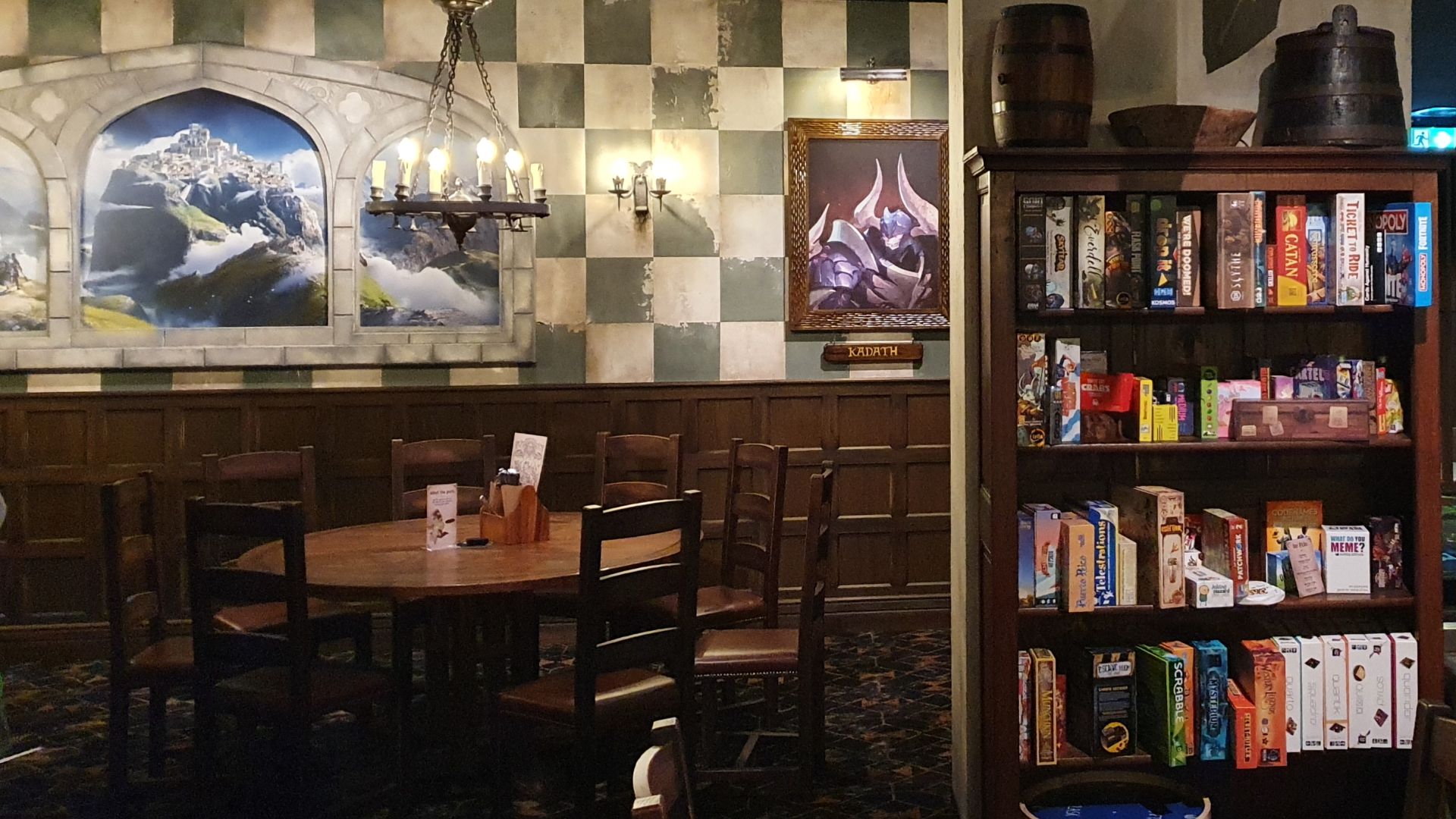
Instead of giving up on the idea of delivery meals, they retooled it for an audience who were aware of Fortress food—their own employees and the casual staff who'd been laid off. "We just sparked the kitchen up and did $5 meals delivered to your home for all staff," Satterley says. Their chef offered a bespoke menu, and that wasn't all. "The other thing is we had a pile of beer that was now gonna go off. And we gave it away. So every time, with every meal you ordered, you got a free beer."
The importance of beer to an Australian business venture like this is impossible to overstate. When Fortress was first being dreamed up several years ago and esports was the next big thing, the original plan was to open as purely a stadium. "As we subsequently explored what it would mean to run an esports-only-type arena and did the due diligence on the numbers, it became apparent that you couldn't really survive in Australia on esports alone," Satterley explains. (Gfinity Esports, which ran an arena in Sydney, closed in 2019.)

Hence, the bar. Two bars, really. A sports bar downstairs near the arena, LAN lounge, and streamer pods, and the Tavern upstairs that now hosts introductions to D&D called Dungeons & Flagons on weekends. "What I wanted to create was a fantasy medieval type bar," Satterley says. "Much more cozy and comfortable than an electronica bar. And that just was more a matter of personal taste and my personal interests, which was more fantasy roleplaying."
While parts of Fortress are definitely RGB as heck, all gamer chairs and green glow, in the Tavern there are bookshelves, a pixel fireplace, and a sculpted troll emerging from the wall. "We're working on a Sunday Carve which complements the RPG Sundays," Satterley says. "Sunday once a month, we have a big event down here which is like a little mini medieval fest with blacksmiths and bards and all this, and RPGs."
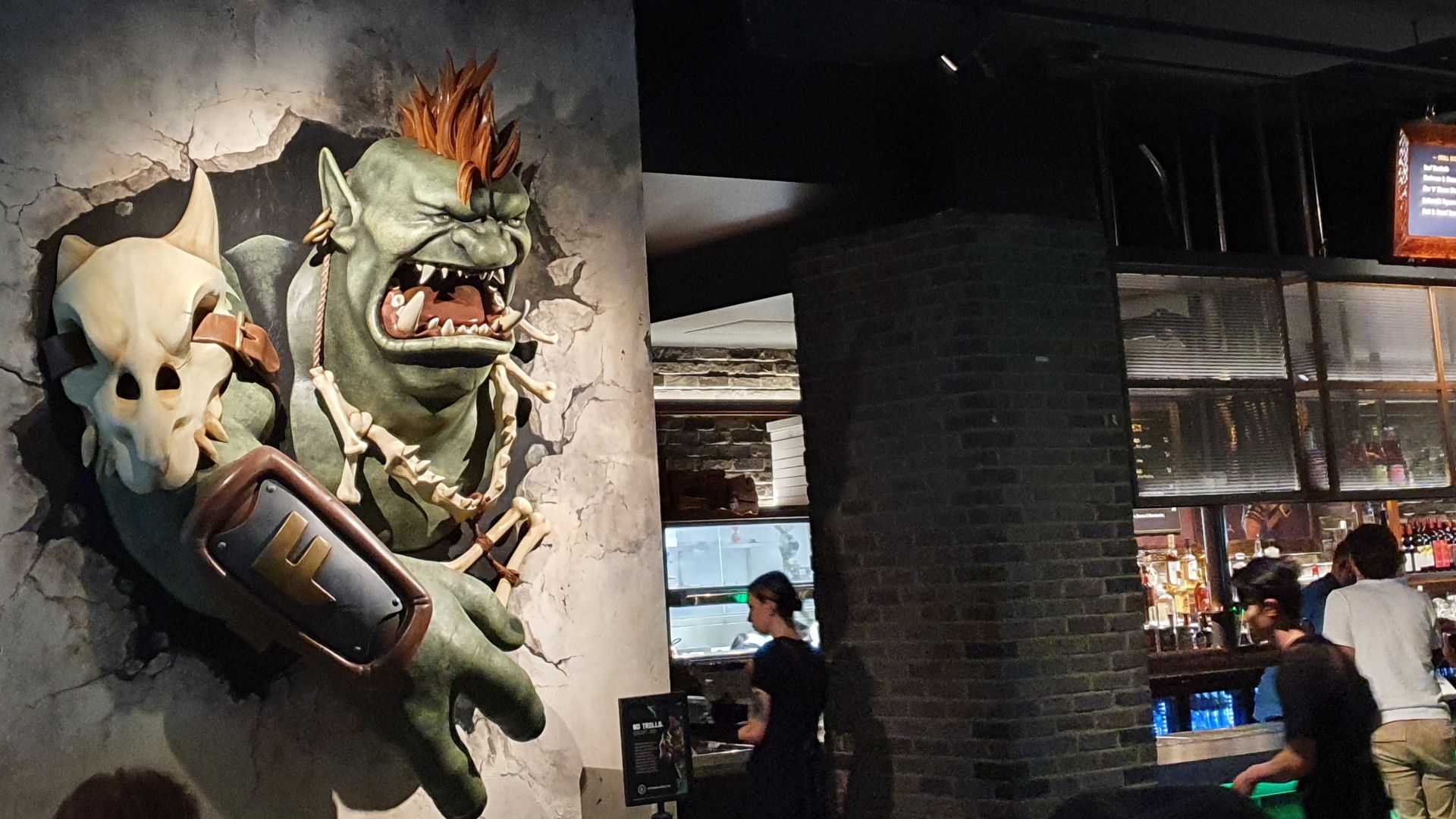
The troll smashing its way out of the wall is one of four characters who recur around the venue in paintings and statues. Each has their own backstory and their own Hogwarts-style house in an upcoming competition that will encompass a variety of games: "The Fortress house cup, which is our big, amateur casual competitive event running for 24 weeks. It's every Saturday in-venue plus a whole bunch of digital online stuff. It's competitive, you play for a house, win points, win prizes, which is a whole bunch of stuff. Big sponsors."
There's also a free gaming film festival (a screening of Sonic the Hedgehog is coming up soon), board game nights, and Parma Tuesdays. There are still limits on how many people are allowed in at the same time, they don't accept cash payment, and staff bustle around sanitizing controllers and peripherals after each use. But when I last visited—for a screening of Pokémon: The Movie 2000, no regrets—there was a solid turnout and it felt like one of the most normal things I've done in weeks.
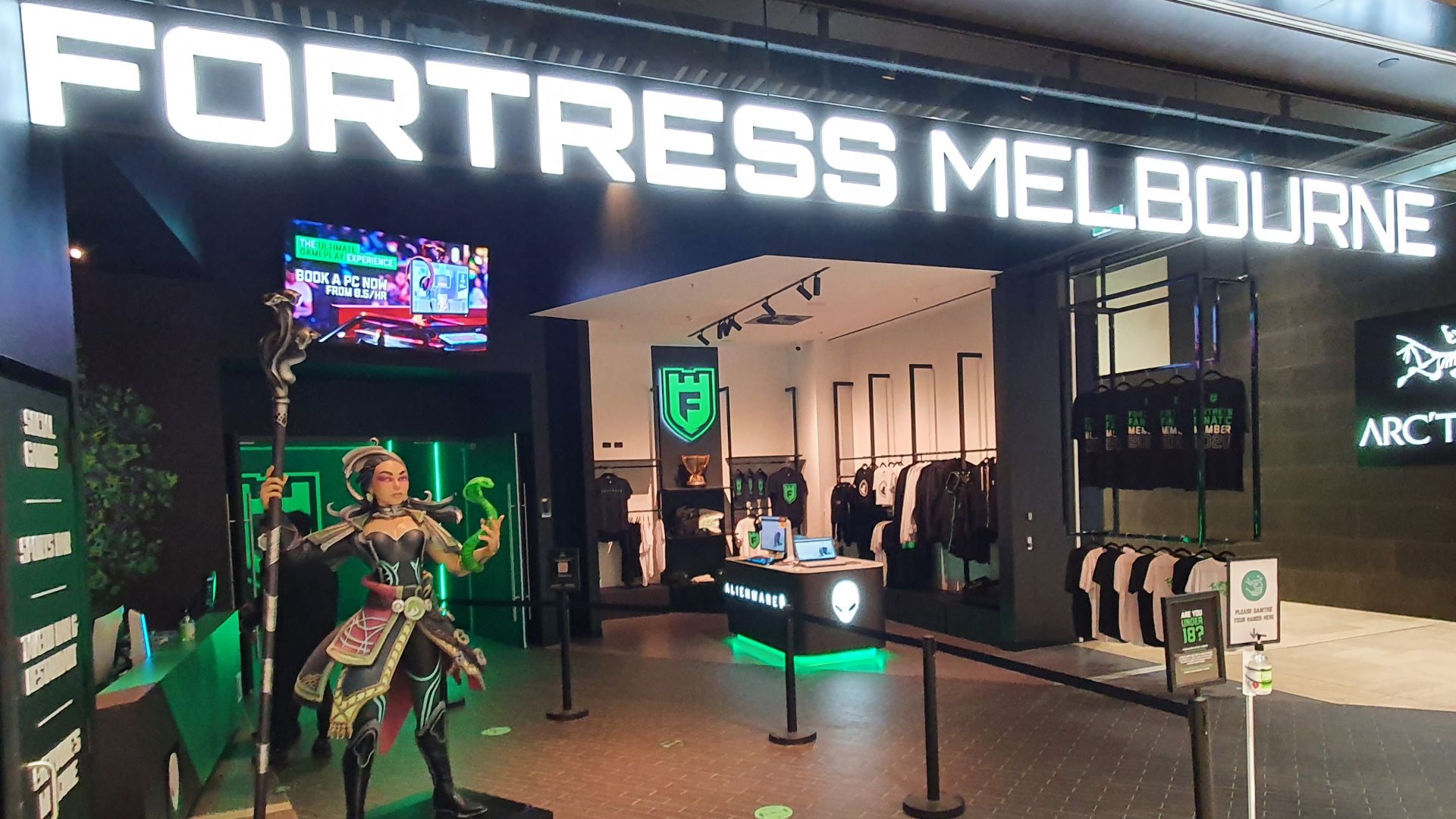
Fortress has a solid calendar of events planned for 2021, a year I didn't expect it to even be here for. But when I ask Satterley whether he considered closing Fortress when the lockdown was first announced, he immediately replies, "Not for a split second."
There's only one thing he gives up on apparently, and that's the endgame of Cities: Skylines. "I got obsessed with Cities: Skylines," he says. "But then it always gets too hard once your city gets above 30,000 people. Traffic's a nightmare. Drop the tools, it's too hard."

Jody's first computer was a Commodore 64, so he remembers having to use a code wheel to play Pool of Radiance. A former music journalist who interviewed everyone from Giorgio Moroder to Trent Reznor, Jody also co-hosted Australia's first radio show about videogames, Zed Games. He's written for Rock Paper Shotgun, The Big Issue, GamesRadar, Zam, Glixel, Five Out of Ten Magazine, and Playboy.com, whose cheques with the bunny logo made for fun conversations at the bank. Jody's first article for PC Gamer was about the audio of Alien Isolation, published in 2015, and since then he's written about why Silent Hill belongs on PC, why Recettear: An Item Shop's Tale is the best fantasy shopkeeper tycoon game, and how weird Lost Ark can get. Jody edited PC Gamer Indie from 2017 to 2018, and he eventually lived up to his promise to play every Warhammer videogame.

